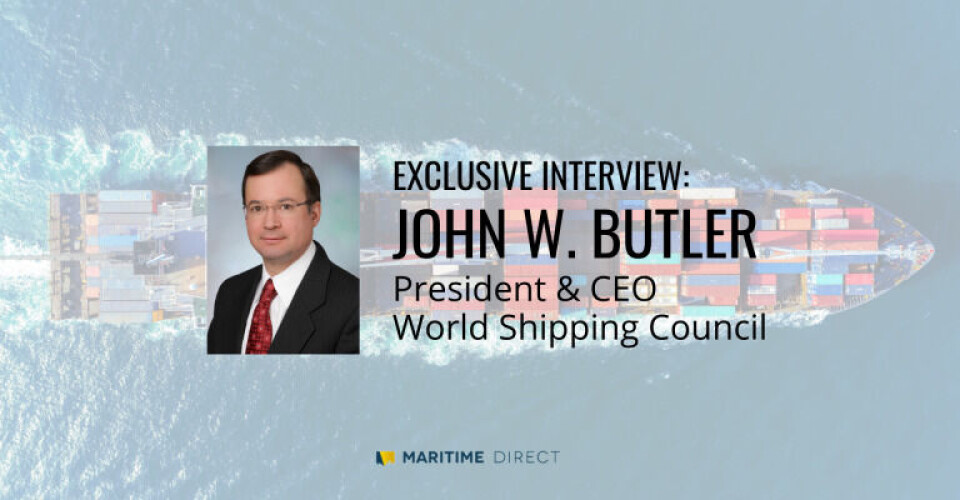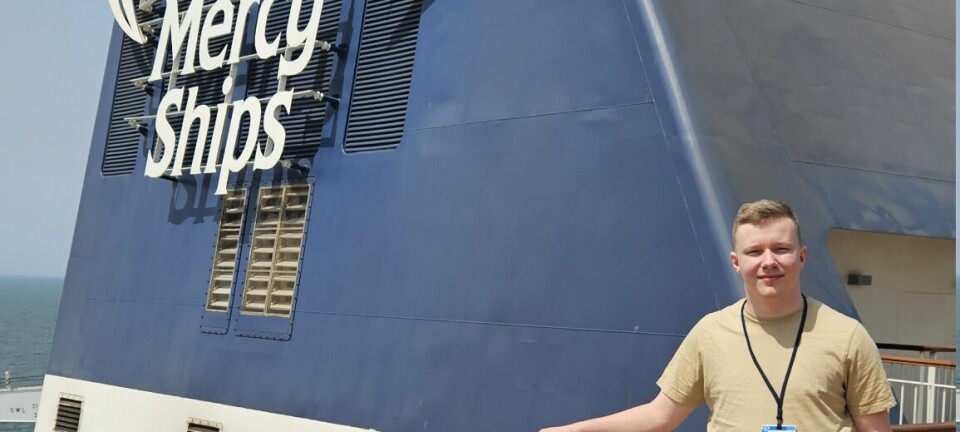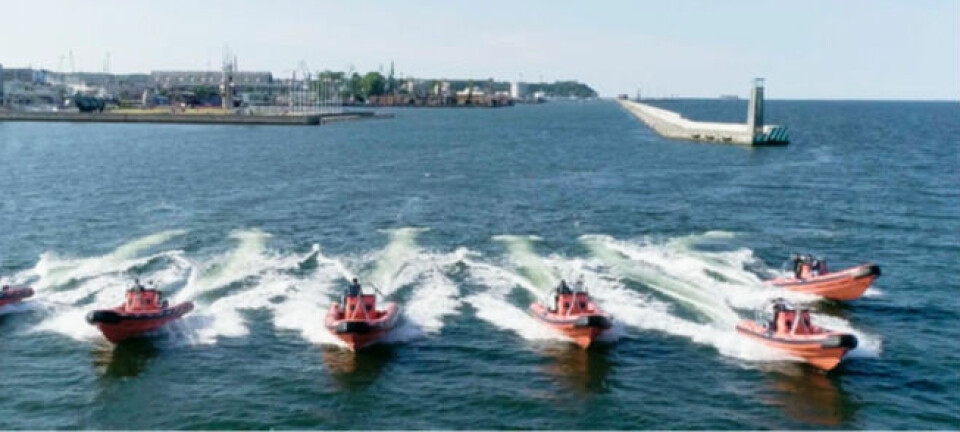Exclusive Interview: John W. Butler of the World Shipping Council

Butler spoke with Maritime Direct in an exclusive interview.
WASHINGTON — Maritime Direct presents an exclusive interview with John W. Butler, the chief executive and of the World Shipping Council — a ‘peak’ industry organization representing the liner shipping sector.
The WSC, featuring executive board chair Jeremy Nixon and representatives from other major companies in the segment, is a crucial party to the Neptune Declaration on Seafarer Wellbeing and Crew Change.
We’ve reported extensively on the declaration and its intention to resolve the international crew change crisis. As a part of this ongoing reportage, we are proud to have interviewed Mr. Butler and we thank the council for organizing the interview’s communications.
Michael McGrady, Maritime Direct Correspondent (MM): Mr. Butler, thank you for speaking with us. Like much of the world, we’ve been tracking the ongoing crew change crisis for many months now. Much of our work covers the efforts of your organization, the World Shipping Council, and other chambers, non-governmental organizations, and international governmental agencies like the International Maritime Organization, the International Labour Organization, and the United Nations General Assembly.
MM: Considering these actors, we would love to speak about your organization’s efforts. What is the World Shipping Council doing to promote the necessary crew change actions?
John W. Butler, Chief Executive Officer and President of the World Shipping Council (JB): WSC is working with an international task force of global shipping associations and international organizations to pressure governments to ensure that crew changes are facilitated.
JB: We have assisted in developing a set of Crew Change Protocols that have subsequently been adopted and circulated by the IMO as a blueprint for countries to facilitate crew changes safely, respecting both the rights of seafarers to return home or to work and of nations seeking to protect public health.
MM: Could you elaborate further on the WSC efforts?
JB: We have also helped develop protocols for the safe interaction of ship and shore personnel. These are practical steps that we have seen contribute to improving the working conditions of seafarers.
JB: With this, we have approached national admirations from Europe to Asia and the US to urge their implementation of the protocols and facilitate visa issuance to seafarers. WSC staff have also helped maritime administrations such as Singapore with the design of their systems.
MM: How do you think the council should work with international partners to promote recognition of the Maritime Labour Convention (MLC), 2006?
JB: WSC efforts together with other partners have been designed to foster a sense of confidence and trust with authorities. We have worked to offer solutions such that compliance with the MLC’s provisions entails no trade-off with public health.
JB: The MLC provisions regarding the facilitation of crew changes and the obligation to provide medical assistance to seafarers are imperatives that governments must respect. If, however, governments continue to neglect their responsibilities, we would expect the IMO, the ILO, and others to first engage with such governments to identify and remove obstacles.
MM: What are the recommendations of the council to help members of stranded crews?
JB: Every situation is different, and it comes down to communications with local authorities. Our members work through these sorts of situations every day. They set up processes to facilitate crew changes across the globe, doing everything from chartering planes to changing vessel routes and adding ports to enable crew change.
MM: What is the council’s position on mandatory vaccinations for crew members?
JB: WSC wants seafarers – who have been designated essential workers by countries worldwide – to have priority access to vaccinations in keeping with that role. Seafarers need to receive all the medical care and treatments that they need to remain healthy and protected in their work.
MM: That’s all well and good, but what’s the council’s actual position on mandatory vaccines?
JB: Vaccinations themselves are nothing new, and seafarers are used to being inoculated when traveling to different destinations. Being protected against COVID should be no different.
MM: So, what is your position on this specific question?
JB: We do not want the absence of a vaccination certificate to emerge as a barrier to work or to cross borders to sign on and off vessels. In this regard, we welcome the European Commission’s position that essential transport workers like seafarers need to remain exempt from travel restrictions and quarantine requirements and should not require a vaccine to carry out their work.
JB: As vaccinations are administered ever more widely, we would firmly advocate a mutually recognized and secure system be established for recording and certifying seafarer inoculations, which is accepted internationally.
MM: That is very interesting. Mr. Butler, it was a pleasure. Thank you very much for answering our questions and speaking with us. We truly appreciate it.
Editorial Note: This interview was conducted over email and phone call interactions between January 15 and February 4. Michael McGrady transcribed the interview for publication. Part of the interview was provided in written responses by a World Shipping Council spokesperson. Any updates to this interview will be immediately reflected.










